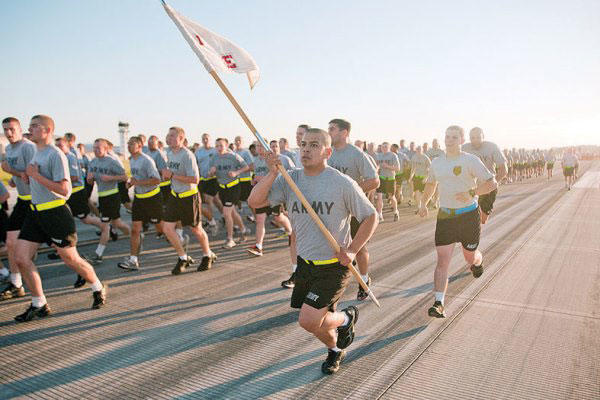The U.S. Army is now allowing a small numbers of soldiers, both officer and enlisted, to take up to a three-year sabbatical from service to pursue educational or other personal challenges to avoid losing top soldiers to the civilian world.
The Career Intermission Pilot Program began as a U.S. Navy effort that Congress authorized as part of the Fiscal 2009 National Defense Authorization Act.
It's open to all Regular Army and the United States Army Reserve Active Guard/Reserve personnel and allows 20 officers -- commissioned or warrants -- and 20 enlisted soldiers per calendar year to transition to Inactive Ready Reserve status for up to three years.
"We are not opening this to just anyone; this is a retention program," said Albert Eggerton, deputy chief of the Officer Division for Army G-1.
"What we are looking for in this program this is to incentivize people who are able, well qualified, show potential for increased responsibility. ... We are trying to get those folks -- who also have challenges in personal life and professional development that can't be met by the Army -- to take a step back, go and achieve these things and come back to us."
For Staff Sgt. Jessica Cotton, the CIPP was an opportunity to go to law school and secure her Army career.
Related Video
"I chose to participate in this program because at the particular time, I was at a crossroads between my career and my education," said Cotton, an automated logistical specialist. "I am very goal oriented, so a goal of mine has always been to practice law, but I also wanted to make the Army a career."
No other Army programs seemed to offer her an answer, so she was about to leave the service when she saw the MILPER message about the program.
She filled out the application and was accepted. Cotton plans to take three years to complete an accelerated law program and then return to service.
"I am totally convinced that this is the program for me because I can devote 100 percent of my time to my studies and then come back," she said.
Soldiers must sign a contract that commits them to two months of service for every month they participate in the program, Army officials said.
Staff Sgt. Mylinda DuRousseau applied to participate in the CIPP so she can spend more time with her daughter who will turn two in October. She currently has 11 years in the Army and her husband has 19.
DuRousseau was a member of the Fort Bliss Culinary Arts Team, earning the title of top team at the military culinary arts competition. She served as a food service specialist for seven years before attending the Defense Information School at Fort Meade, Maryland in 2011 to become a public affairs specialist.
DuRousseau said she also intends use the three years to finish her Bachelor's degree.
"I didn't really want to walk away from my career, but it was getting to that point," she said.
CIPP participants receive two days of pay every month, similar to the pay Guard members receive for monthly weekend drills. Participants also retain their medical and dental benefits and commissary privileges. They cannot use tuition assistance programs but can use the GI Bill to pay for school, Army officials said.
Currently, there are only six soldiers participating in the program, two officers and four enlisted members.
"So far we haven't had too much response. ... I kind of see this as soldiers and officers in the field are a little bit leery about this program and I don't blame them," said Eggerton. "It's hard to step off a fast moving train and expect to come back, and we know that is a challenge. But it's also important for them to do things that support their personal and professional development in ways we can't really support in the Army."
One of the officers serves in 1st Special Forces Group. He will use the CIPP to help his elderly parents sell their home and move into a townhome, said Robert Peterson, CIPP Program Manager for the Officer Personnel Management Directorate of Army Human Resources Command.
After that, he plans to travel in Asia for professional development since the 1st SFG covers that region of the world, Peterson said.
Army officials anticipate the program will attract more participants once the word gets out. The final report to Congress on the effectiveness of the program isn't due until 2022.
"Intentionally, it's kept small because this still is a pilot, and we are still trying to figure out whether it is going to work," Eggerton said.
-- Matthew Cox can be reached at matthew.cox@military.com





























